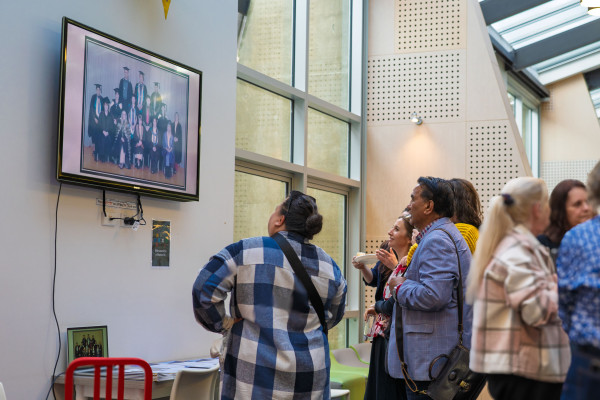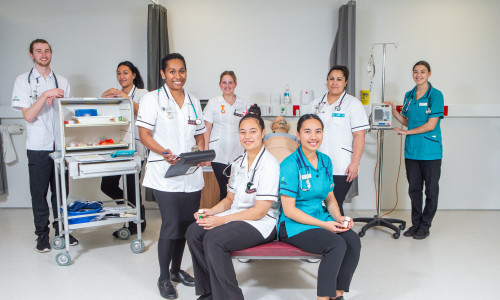Graduates, tutors, sector leaders and government representatives came together at Whitireia and WelTec recently to celebrate 30 years of the New Entry to Specialist Practice (NESP) mental health and addiction nursing programme.
Held during Mental Health Awareness Week, the event honoured three decades of preparing nurses to step into vital roles across Aotearoa New Zealand’s mental health and addiction services.
The celebration hosted by Whitireia and WelTec’s Head of School for Health Carmel Haggerty, supported by the Dean Te Wānanga Māori Jeanette Grace (Ngāti Tūwharetoa, Ngāti Toa Rangatira and Ngāti Koata), bought together representatives from government, including Minister for Mental Health Hon. Matt Doocey, alongside senior nursing leaders from Te Whatu Ora, Te Pou, and the wider sector.
The NESP programme was first piloted in 1995 to support graduate nurses entering mental health, addiction, and disability services. Since then, more than 1,400 nurses have completed the post graduate qualification; with many progressing into leadership positions and specialist roles across the motu.
Minister for Mental Health, Hon. Matt Doocey, acknowledged the importance of specialist training in supporting the country’s mental health workforce. "I’ve been clear that one of the biggest barriers to timely mental health support is our workforce vacancy rates, so it was particularly pleasing to join the celebrations recognising both 30 years of the NESP programme and the exceptional role Whitireia and WelTec continue to play in preparing registered nurses for entering a fulfilling career in specialist mental health and addiction practice," said Minister Doocey.
"Nurses help form the backbone of mental health and addiction services around the country, and they help ensure vulnerable Kiwis get the right support, in the right place, when they need it. I want to personally thank organisations like Whitireia and WelTec and others for their efforts in continuing to grow our mental health workforce and helping deliver faster access to support for Kiwis. I’ve made growing our frontline workforce a priority - including through New Zealand’s first Mental Health and Addiction Plan, which provides 110 additional NESP training places," said Minister Doocey.
Speakers also highlighted the way NESP has embedded a holistic approach to practice, drawing on Te Whare Tapa Whā and close collaboration with service user organisations. Carmel Haggerty, one of the programme’s earliest leaders, explained "collaboration with our clinical partners has enabled us to integrate lived experience and specialist knowledge into our programme, which not only ensures graduates are technically ready to engage in mental health, addiction, and intellectual disability care, they have a deeper understanding of the needs and experiences of people who use these services."
 Guests came together to celebrate 30 years of Whitireia and WelTec’s New Entry to Specialist Practice (NESP) mental health and addiction nursing programme.
Guests came together to celebrate 30 years of Whitireia and WelTec’s New Entry to Specialist Practice (NESP) mental health and addiction nursing programme.
The event was both a celebration of the past and a moment to look forward. "The strong connections we have built with clinical partners truly equips our graduates with the essential skills, professional networks, empathy and resilience to work with service users and their whānau," said Jeanette Grace. "This approach and continued sector collaboration ensures our graduates are not only clinically skilled but also resilient, culturally responsive, and able to meet the evolving needs of individuals, whānau and communities."
As Mental Health Awareness Week shined a spotlight on the importance of wellbeing and support, the milestone also reinforced the critical role of education in building a skilled, compassionate workforce for the future.
Pictured L-R: Kuni Shepherd, kaumātua MHAIDS, Toni Dal Din, Health New Zealand, Kym Parks, Director of Nursing MHAIDS, Anita Baker, Mayor of Porirua City, Nadine Gray, Chief Nurse Te Whatu Ora, Carmel Haggerty, Head of School for Health, Hon. Matt Doocey, Minister for Mental Health, Jeanette Grace, Dean Te Wānanga Māori, Dr Te Taku Parai, Te Rūnanga o Toa Rangatira.
